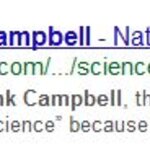
In the 21st century, it seems to be settled that quotas are a bad idea. By picking people based on a characteristic outside their ability to best do a job, it seems to be another term for discrimination.
Some countries have done it anyway. Mexico, for example, passed quotas to create equal gender representation in government but a new social studies paper concludes that the quality of female candidates did not go down, nor did women rely on personal connections more than men to get elected.
The paper in Politics, Groups, and Identities is in direct opposition to critics who argued…




